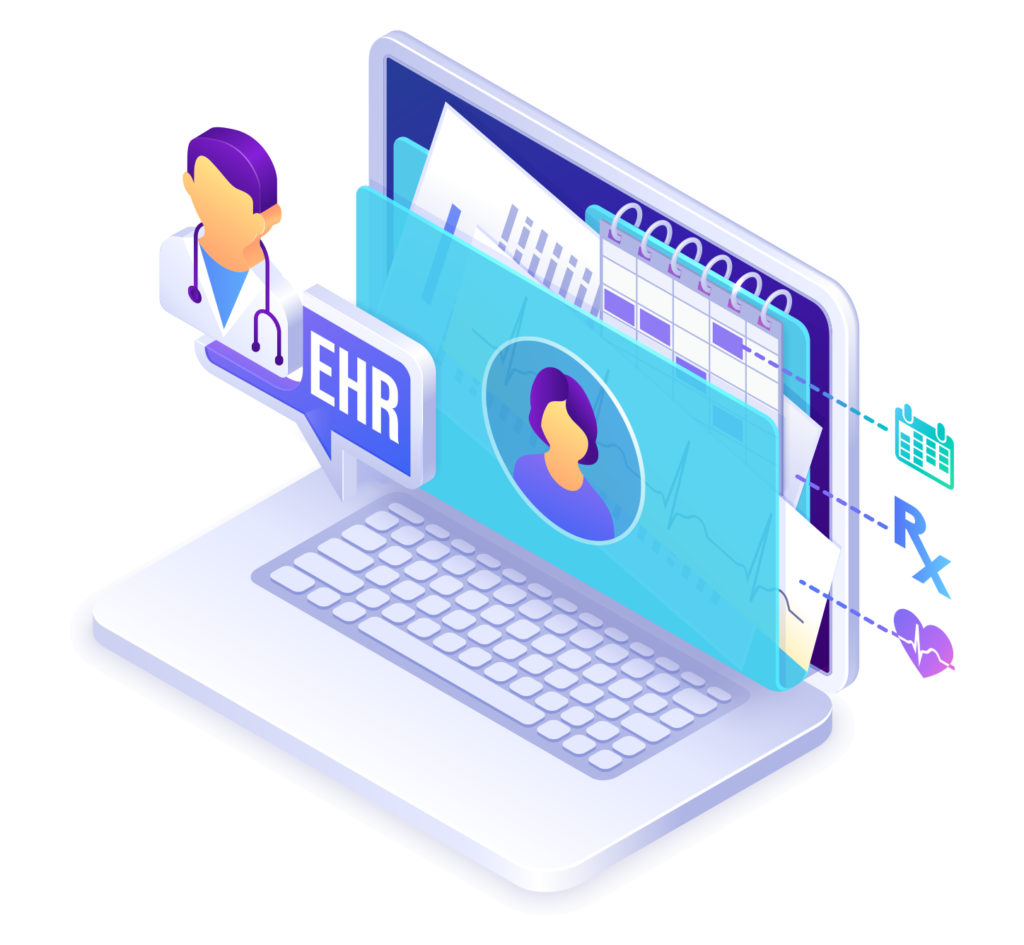Role of EHR for Quality clinical care
Home » Role of EHR for Quality clinical care
Role of EHR for Quality clinical care
Electronic Health Records (EHRs) play a pivotal role in enhancing the quality of clinical care by improving access to patient information, streamlining processes, and facilitating data-driven decision-making. Here are key aspects of the role of EHRs in supporting quality clinical care:
Comprehensive Patient Information:
EHRs provide a centralized and comprehensive repository of patient information, including medical history, medications, allergies, laboratory results, and imaging reports. This accessibility ensures that healthcare providers have a holistic view of the patient’s health, promoting informed decision-making.
Coordination of Care:
EHRs facilitate seamless communication and collaboration among healthcare providers within a network. This coordination enhances the continuity of care, reduces the likelihood of errors, and ensures that all members of the healthcare team are well-informed about the patient’s condition and treatment plan.

Decision Support Tools:
EHRs integrate decision support tools, such as clinical alerts, reminders, and evidence-based guidelines, into the workflow. These tools assist healthcare providers in making informed decisions, adhering to best practices, and avoiding potential errors.
Medication Management:
EHRs support medication management by providing accurate and up-to-date information on prescribed medications. Automated alerts for potential drug interactions, allergies, and dosage errors contribute to medication safety and adherence.
Health Maintenance and Preventive Care:
EHRs include features for tracking and managing health maintenance activities, such as vaccinations, screenings, and preventive care. This helps healthcare providers proactively address the healthcare needs of patients, contributing to disease prevention and early detection.
Patient Engagement:
EHRs empower patients by providing access to their own health information, including test results, treatment plans, and medication lists. Patient portals facilitate communication with healthcare providers, support self-management, and encourage active patient engagement in their care.
Efficient Documentation:
EHRs streamline the documentation process, allowing healthcare providers to efficiently capture and update patient information. Templates and structured data entry contribute to standardized documentation practices, improving accuracy and facilitating data retrieval.
Data Analytics and Population Health Management:
EHRs enable data analytics and population health management by aggregating and analyzing patient data on a broader scale. This capability supports healthcare organizations in identifying trends, managing population health, and implementing targeted interventions to improve outcomes.
Quality Reporting and Compliance:
EHRs assist healthcare organizations in meeting quality reporting requirements and regulatory compliance. Automated reporting tools generate data for quality measures, ensuring that healthcare providers adhere to established standards and guidelines.
Telehealth Integration:
With the growing adoption of telehealth, EHRs facilitate the integration of telehealth platforms. This seamless integration allows for virtual visits, remote monitoring, and the exchange of information between healthcare providers and patients.
Interoperability:
Interoperability features enable the exchange of health information between different healthcare systems and providers. This ensures that critical patient information is accessible across the continuum of care, promoting collaboration and reducing redundancies.
Efficiency and Time Savings:
EHRs contribute to improved efficiency and time savings in clinical workflows. Automated processes, electronic order entry, and electronic prescribing reduce administrative burdens, allowing healthcare providers to focus more on direct patient care.
Continuous Improvement:
EHRs support continuous improvement in clinical care by providing a platform for performance measurement, quality improvement initiatives, and the implementation of evidence-based practices. Data-driven insights contribute to ongoing enhancements in care delivery.
While EHRs offer significant benefits for quality clinical care, successful implementation and utilization require ongoing training, system optimization, and a commitment to addressing potential challenges, such as data security and usability concerns. When effectively leveraged, EHRs contribute to a patient-centered, efficient, and high-quality healthcare environment.
Ready to Begin?
Start with our FREE Consultation!
Or call +880 1766-709223 or write us at info@qcconcern.org with any other questions.
